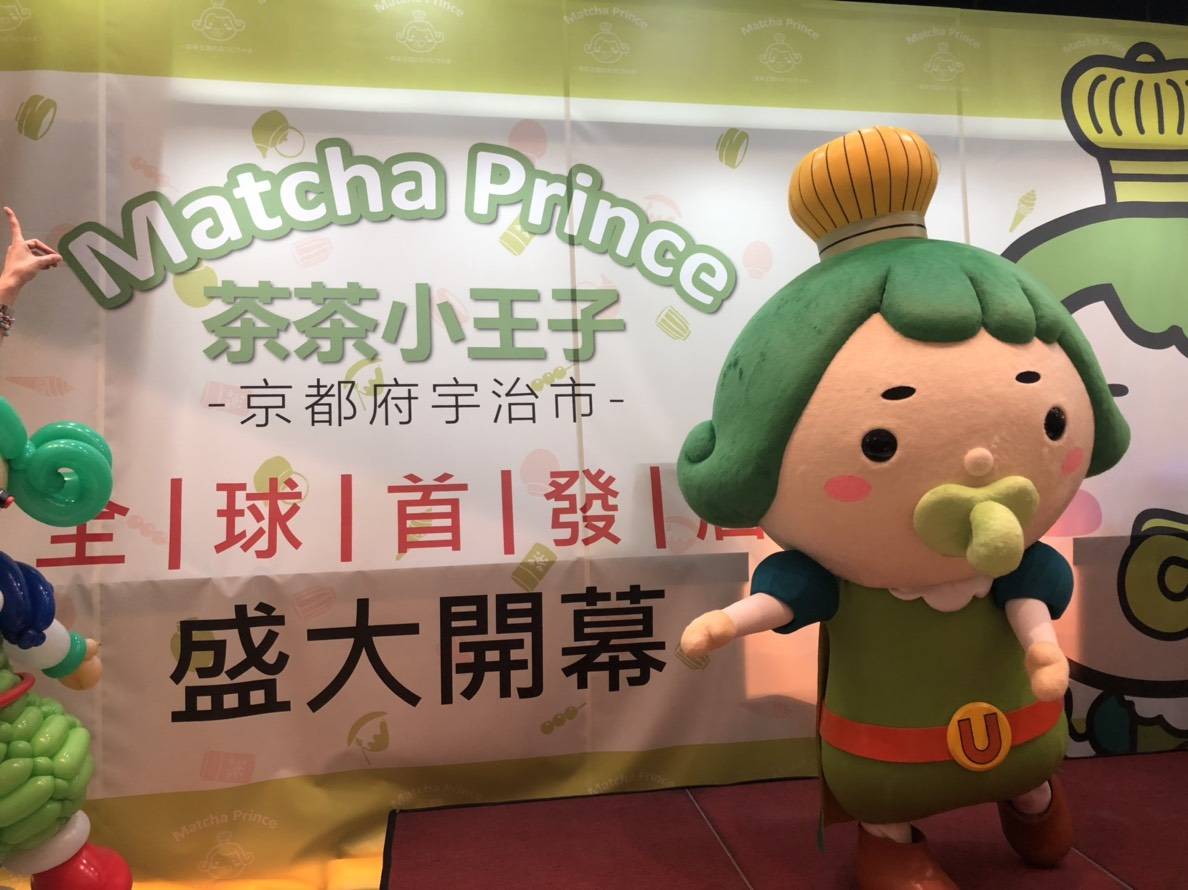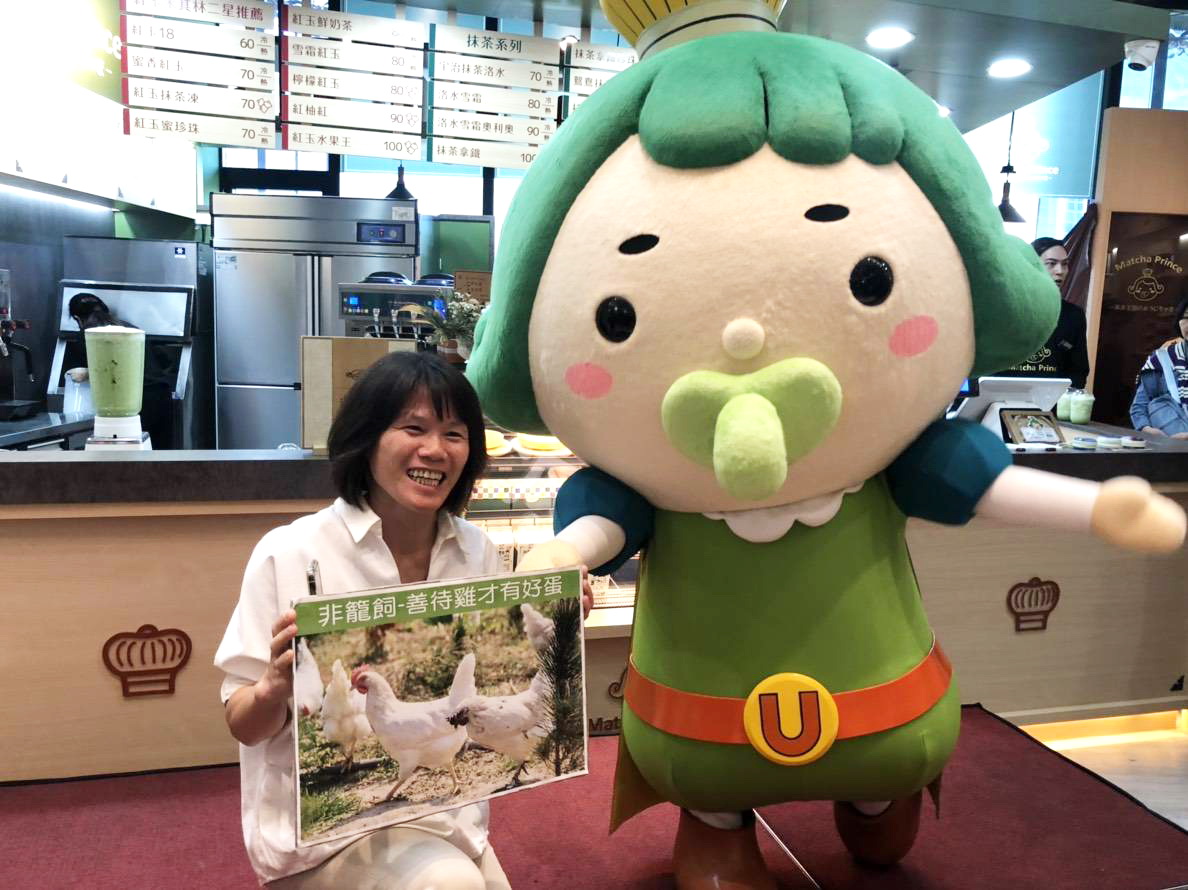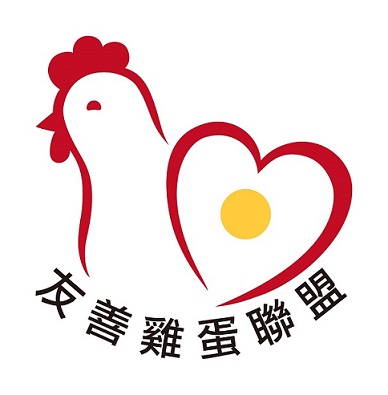Matcha fans rejoice! Renowned dessert chain to expand to Taiwan, will use cage-free eggs

Chinese Version / Japanese Version
Matcha fanatics wanting to support animal welfare while sampling the most authentic Japanese desserts are in luck!
Matcha Prince—the exclusive mascot of Uji city, Kyoto, Japan —is venturing overseas for the first time. On January 10, Matcha Prince will open its first store on level two of the Breeze Centre at Nanshan Plaza (No. 3, Songlian Rd, Xinyi District). Apart from original products imported from Kyoto, all pastries will use premium Uji matcha and eggs from members of the Cage-Free Alliance . Matcha swiss rolls and Kyoto Ross Cake(京香捲) will be among products featured on the menu. Slated gift series collaborations with famed Taiwanese pineapple cake maker, Shu Shin Bou (手信坊), will also use only cage-free eggs.
Deputy Chief Executive of the Environment & Animal Society of Taiwan, Yu-Min Chen, expressed gratitude to Matcha Prince for its forward-thinking cage-free policy. In recent years Taiwan has faced countless egg-related food safety scandals, with eggs showing antibiotic residues, contamination, expired use-by dates, or improper handling found entering the market. Matcha Prince’s decision to source cage-free eggs is therefore a boon for scandal-weary Taiwanese consumers, and a landmark step for the baking sector in Taiwan.
Currently, 90% of eggs in Taiwan come from hens confined in battery cages. Hens are forced to spend their entire lives in cramped cages about the size of an A4 sheet of paper, with two to four hens sharing this tiny space. Hens raised in battery cages never experience grass under their feet, and the cramped conditions mean hens are routinely trampled to death. The confinement is so extreme that these inquisitive, gentle animals are unable to even spread their wings freely. To prevent disease and economic losses in such horrific living environments, feed is routinely loaded with antibiotics, while hens are prone to suffering from respiratory, digestive, and skeletal illnesses.
The European Union banned the use battery cages in 2012, while countries around the world are adopting barn-raised and free-range systems at a rapid pace, including Taiwan. Already, more than 500 multinational food manufacturing, retail, and food service companies have pledged to abolish cages from their supply chains, setting firm timelines for the sourcing of cage-free eggs. Last year Carrefour Taiwan joined the international trend, announcing a new cage-free egg sourcing policy as part of its Food Transition initiative. The lead taken by Carrefour’s CSR department also played a role in influencing Matcha Prince’s historic sourcing decision.
EAST’s Yu-Min Chen called on the Taiwanese food service and baking industries to set ambitious timelines for the sourcing of cage-free eggs in the name of corporate social responsibility, food safety, and environmental sustainability, and to support farmers who have switched to cage-free production systems.
Regardless of the issue, whether it be risks to human health, environmental protection, or industry resilience, only by rejecting mistreatment of animals can all sides win. Yu-Min Chen encouraged consumers to support the progress of Taiwan’s food producers and ensure the safety of loved ones by purchasing only cage-free eggs, using their dollar to voice support for the cage-free movement.

Cage-Free Alliance certification
The Cage-Free Alliance is a certification scheme established by EAST. All members produce 100% barn-raised or free-range eggs and adhere to the Alliance’s higher animal welfare standards. Members are subject to routine and unannounced audits to ensure complete transparency and traceability from farm to table.
Learn more on the Cage Free Alliance website.











